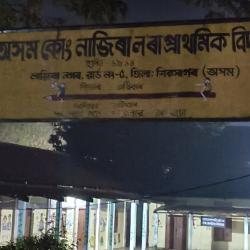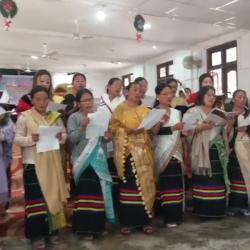Education is complete only when it is inner and outer both. Modern education is lopsided, it is focused only on the outer. Education should have two wings, first education of the inner, of meditation and second education of other things. Unless one becomes acquainted with oneself, all knowledge is useless. A man who knows himself will never misuse his education in the outer world.
Man is both, in and out, and universities should be devoted to both outer and inner exploration.
Western universities have been teaching knowledge for centuries. Now in the East also, universities are teaching knowledge because they are nothing but copies of the West. Originally, Eastern universities never taught knowledge. Universities like Nalanda and Takshashila, did not teach knowledge; they taught meditation. They were teaching a deep ignorance and a deep mystery around. Now there exists no such Eastern university. All of the universities are Western wherever they exist, whether in the East or in the West. They go on stuffing the mind with knowledge. A student who comes out of such an university has only outer knowledge but no soul. Such a student remains ignorant of the inner mysteries. He is only stuffed with knowledge and that knowledge feeds his ego.
For example, love cannot be taught; no book can help to understand love. Love is about experience. But a situation, a more natural milieu, birds, trees, animals, can be created where one can feel life more and help one to grow in the heart dimension. Persons who love are needed near because love is infectious. We are not like islands, we are joined together, so everyone influences everybody else. In the East, particularly in India, the house of the master, his ashram, was called gurukul - the family of the master. His disciples were really his descendants.
Osho says, “A loving milieu is needed to teach love. In our schools, colleges, universities, there is no loving milieu. The teacher is not related at all. Just because of the traditions of the old days, in India the vice-chancellor is never called the vice-chancellor, he is called kulapati, the head of the family. There were ten thousand students in Nalanda, and the head of the family, the vice-chancellor, knew every student by his face and name. He knew everybody - ten thousand students. When someone was ill and when someone was okay, he would go and see. He loved his students, he knew them by name. He was really the "head of the family." Just traditionally in India they still go on calling the vice-chancellor kulapati.”
Nalanda university existed long before Oxford or Cambridge existed. Every professor in Nalanda had to be a meditator. Unless a person had meditated for years there was no possibility for him even to become a student in Nalanda. Nalanda had four gates and the gatekeepers were no ordinary people. Unless a person was able to answer their questions, unless they were satisfied that he had a possibility to become a meditator, the person was refused from the very gate. The gatekeepers were as much meditators as the professors. The whole university was concerned with only one thing, that everybody has to be reminded of enlightenment. All scriptures indicated towards it, every sermon, every act, every exercise, was meant purposefully to take one inwards.
Osho shares a beautiful story about the Nalanda University when Hiuen Tsang came and was entering the main gate. Nalanda was the biggest university in India; it had 10,000 students from all over the world. It is suspected that Jesus had been one of the students. When Hiuen Tsang came to the main door he met a bhikkhu - a sannyasin. He began to ask questions about the university: "What is the training etc..? The man began to answer. Hiuen Tsang was so impressed with the man, and the man was so learned that Hiuen Tsang thought by chance that he was the Vice Chancellor - but he was just a doorkeeper. He reports in his memoirs that he was just a doorkeeper, but he knew everything about philosophy. So Hiuen Tsang remained for three years in that university. When going back, he again passed the door, and he asked the man, "Why are you still a doorkeeper? You know so much."
The man said, "Because I only know. I have failed in experience. I only know, so I am a failure. I know as much as the Vice Chancellor; there is no difference as far as knowledge goes - but I am a failure because I couldn't grow into experience. That is why I am just a doorkeeper."
Learned men are just doorkeepers. The Indian attitude is for experience.
The education which does not uncover the inner truth or God is incomplete and dangerous. If all the graduates from the university come out with a meditative mind, they will change the whole structure and fabric of the society.
- 7469 reads










Add new comment